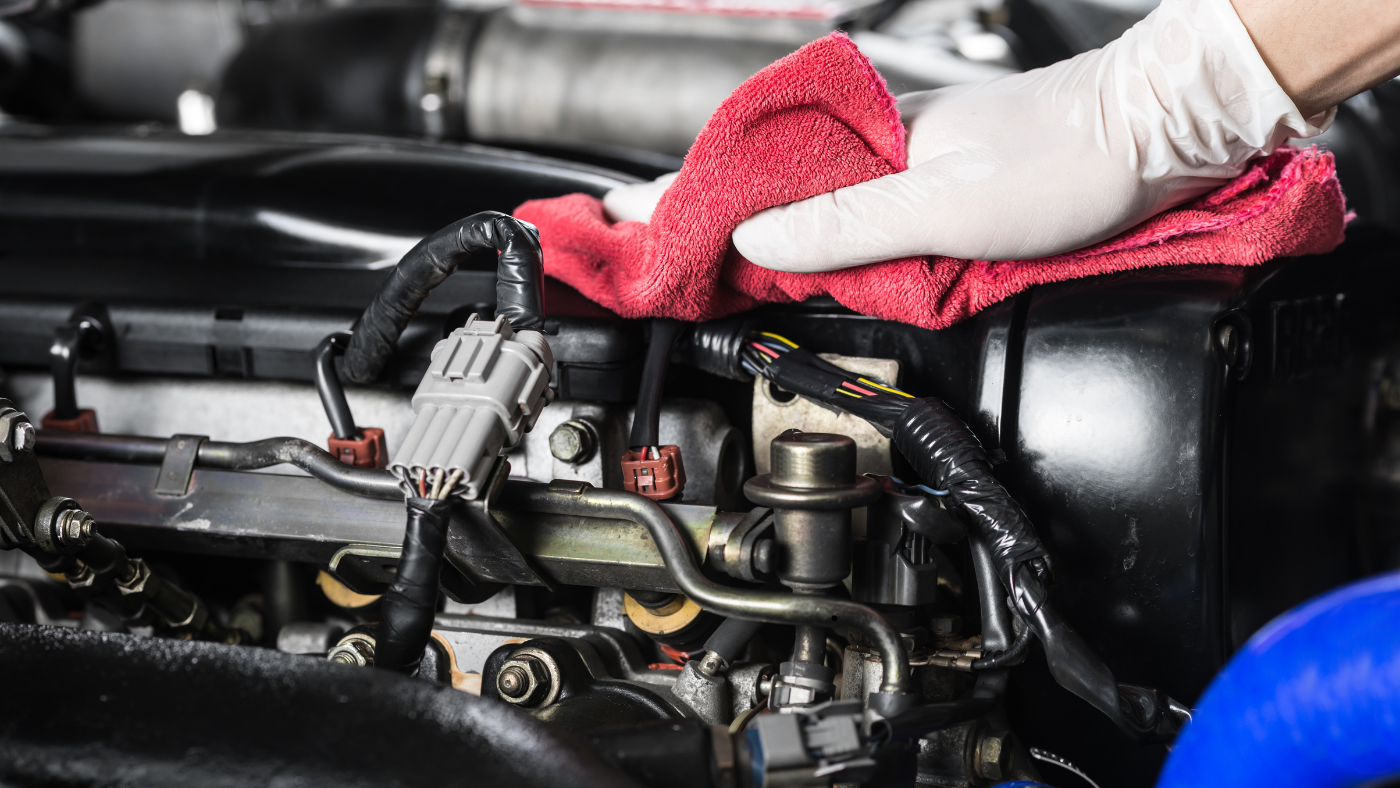
7 Powerful Reasons Why the Importance of Regular Engine Bay Cleaning Can’t Be Ignored
When most people think of car maintenance, they picture oil changes, tire rotations, or brake checks. But there’s one crucial aspect often overlooked — engine bay cleaning. According to a report by AAA, nearly 35% of vehicle breakdowns stem from engine-related issues (AAA, 2023). Regularly cleaning your engine bay can significantly reduce the chances of costly repairs while improving overall performance.
Beyond aesthetics, keeping your engine bay clean ensures your vehicle stays reliable, efficient, and safe. Let’s explore why this routine should never be skipped and how it directly affects your car’s health.
1. Enhances Engine Performance
A dirty engine bay collects dust, grime, and oil residue, which can interfere with the engine’s efficiency. Over time, dirt can block filters, hinder proper airflow, and cause components to work harder than they should. A clean engine bay helps maintain optimal airflow, ensuring that your car’s performance remains at its peak.
2. Prevents Corrosion and Damage
Grease, road salt, and oil leaks can lead to premature rust and corrosion in the engine bay. Once metal parts start to corrode, they weaken and may eventually fail. Regular cleaning removes these harmful substances before they can cause lasting damage, preserving the longevity of vital engine parts.
3. Makes Leaks Easier to Spot
When the engine bay is covered in grime, spotting small leaks becomes nearly impossible. Whether it’s oil, coolant, or brake fluid, leaks can escalate into major problems if left unnoticed. A clean engine bay allows you to detect issues early, saving you from expensive repairs and potential breakdowns.

Sparkle Up Your Ride — Fast & Easy!
Book in seconds. Shine that lasts. No mess, no stress — just cleanliness delivered.
4. Improves Safety
Did you know that oily residue can increase the risk of engine fires? According to the U.S. Fire Administration, over 150,000 vehicle fires occur annually in the U.S., with many starting in the engine compartment. Keeping the engine bay clean reduces the buildup of flammable materials, lowering the chances of a fire hazard.
5. Extends the Lifespan of Components
Rubber hoses, wiring, and belts can deteriorate faster when exposed to constant dirt, grease, and heat. Regular engine bay cleaning helps reduce wear and tear on these components, extending their lifespan and keeping your vehicle running smoothly.
6. Increases Resale Value
A clean engine bay sends a strong signal to potential buyers: this car has been well-maintained. Dealers and private buyers often use the engine bay’s condition as a reference for the car’s overall care. Regular cleaning boosts curb appeal and can increase your vehicle’s resale value.
7. Professional Diagnosis Becomes Easier
Mechanics prefer working on a clean engine. Not only does it make their job safer, but it also allows them to quickly identify problems without the distraction of layers of dirt. This leads to faster, more accurate diagnostics, which saves you both time and money.
How Often Should You Clean Your Engine Bay?
Experts recommend cleaning your engine bay every 6 to 12 months, depending on your driving environment. If you frequently drive in dusty, muddy, or snowy conditions, you may need more frequent cleanings to prevent buildup.
DIY vs. Professional Engine Bay Cleaning
- DIY Cleaning: Suitable for light dirt and dust. Requires basic supplies like degreaser, brushes, and a hose.
- Professional Cleaning: Ideal for deep cleaning, stubborn grime, or when you want guaranteed safety for electrical components.
For best results, a mix of both methods is recommended.
Tips for Safe DIY Engine Bay Cleaning
- Always let the engine cool before cleaning.
- Cover sensitive parts like the alternator and battery.
- Use a non-corrosive degreaser.
- Rinse gently with low water pressure.
- Dry thoroughly to prevent moisture buildup.
FAQs About the Importance of Regular Engine Bay Cleaning
Q1: Does cleaning my engine bay improve fuel efficiency?
Yes. A clean engine runs more efficiently, which can slightly improve fuel economy over time.
Q2: Is it safe to wash the engine bay with water?
It’s safe if you protect electrical components and use low-pressure water. Avoid high-pressure washers that can force water into sensitive areas.
Q3: Can I use household cleaners for engine bay cleaning?
No. Always use automotive-approved degreasers to prevent damage to rubber, plastics, and metals.
Q4: How much does professional engine bay cleaning cost?
On average, professional cleaning ranges from $75 to $150, depending on the vehicle and location.
Q5: Will cleaning the engine bay void my warranty?
Not if done properly. In fact, a well-maintained engine bay can help uphold warranty claims.
Q6: Can engine bay cleaning prevent overheating?
Yes. By removing dirt and debris that block airflow, engine bay cleaning can help prevent overheating.
Conclusion: Keep Your Engine Bay Clean, Keep Your Car Healthy
The importance of regular engine bay cleaning goes beyond aesthetics. It’s a crucial maintenance step that improves safety, extends the lifespan of components, enhances performance, and increases resale value. Whether you do it yourself or hire a professional, consistent cleaning is an investment in your vehicle’s future.

